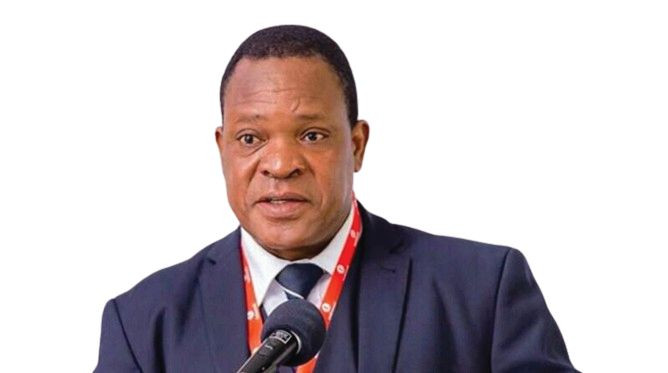
GOVERNMENT says it will only declare Bulawayo a water crisis area after a committee appointed to assess the water situation in the city completes its work and is satisfied there is need to make such a declaration.
Declaring the city a water crisis area would allow the local authority to mobilise international support for short-to-medium term projects to alleviate the city’s water crisis.
Lands, Agriculture, Fisheries, Water and Rural Development minister, Anxious Masuku, said a government-appointed technical committee was analysing dam levels before making a decision.
Government appointed the technical committee late last year to implement a 100-day action plan to alleviate the water challenges.
However, the water crisis has worsened with no solution in sight yet. Residents are now going for nearly two weeks without water in the midst of a cholera outbreak.
Over the last few months, the local authority has been insisting that Bulawayo should be declared a water crisis area to find quick solutions to the crisis.
On Tuesday, Masuka said the government needed to be well informed about dam levels in the city before declaring the city a water crisis.
“As a government, we can’t rush to declare Bulawayo a water shortage area,” Masuka said in an emergency meeting. There are many dams which we don’t know their current water levels.
- In Full: Nineteenth post-cabinet press briefing: July 05, 2022
- Revisiting Majaivana’s last show… ‘We made huge losses’
- Edutainment mix: The nexus of music and cultural identity
- ChiTown acting mayor blocks election
Keep Reading
“As the government, we say if there is water which can last for the next ten months we then start to critically analyse if the water can carry us to the next rainy season.
In 2020, the BCC wrote to the Local Government ministry requesting that the city be declared a water shortage area. In response, the government hired consultants to study the water situation.
In their analysis, the consultants blamed the council for lacking the technical know- how of drawing water from depleted dams. The consultants, however, did not offer any solutions and the water crisis persists.
“It’s not people wishing to have a crisis declared, it is a factual scientific approach,” Masuka said.
“The dams are known, their capacity is known, the conveyancing is knowns so we need to be able to get factual information regarding what quantities of water we have, the evaporation that is likely to take place and then we know that we have enough water that will last us until the next rainy season.
“That is all we have asked the technical committee to do in order to inform us in order to make a decision and the decision that is grounded on facts."
Bulawayo mayor David Coltart urged residents not to panic.
“We do have a short term strategy and working closely with the government we will address these issues and I’m sure we will get through this period,” said Coltart.
Bulawayo residents, however, reacted angrily to the government’s refusal to declare the city a water crisis area.
“We are saddened to hear the minister's remarks and attitude about the critical water situation faced by the city,” Bulawayo Residents’ Association chairperson, Winos Dube, said.
“This is something which needs urgent attention. It doesn’t make sense to delay declaring Bulawayo a water shortage area. It doesn’t need a scientific approach to see the dire water situation in the city.”
Bulawayo Progressive Residents Association secretary for administration, Thembelani Dube, said the city was crying out for urgent solutions.
“A baseline survey is an important aspect to determine the gravity of the problem in any needs assessment or project planning,” Dube said.
“We wait eagerly for the outcomes from the tasked committee for the Bulawayo water Crisis situation to get the necessary short, medium and long term solution.”







